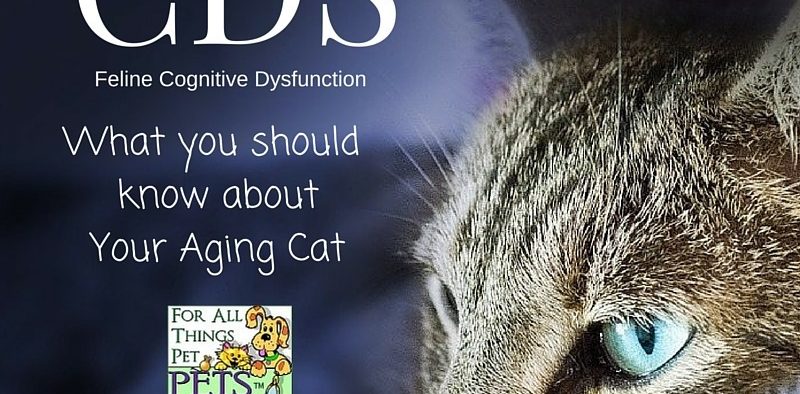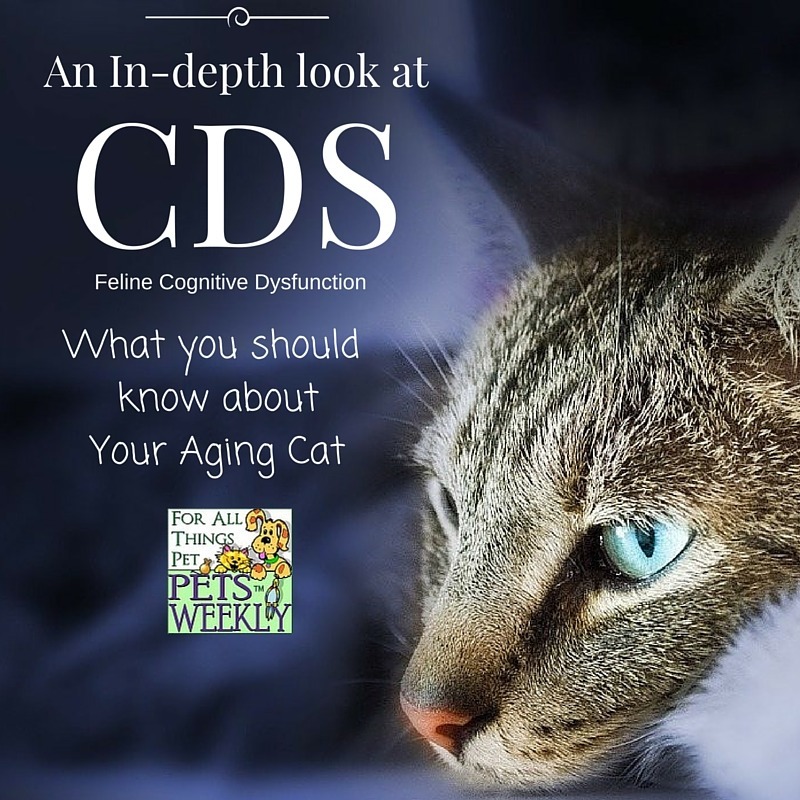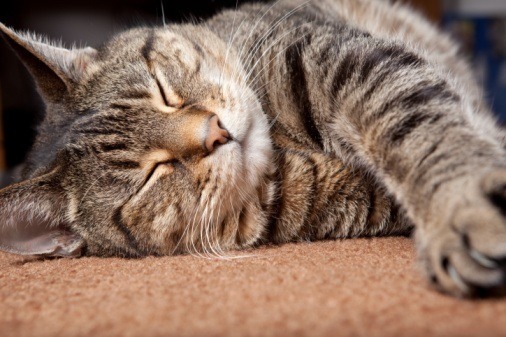An In-depth Look at Feline Cognitive Dysfunction
Share

 Our cats are living longer than ever, thanks to the life we’re helping to give them: good food, staying safely inside, environmental stimulation, and, yes, love. (Go ahead, find the data—but I firmly believe that love helps all of us last longer.)
Our cats are living longer than ever, thanks to the life we’re helping to give them: good food, staying safely inside, environmental stimulation, and, yes, love. (Go ahead, find the data—but I firmly believe that love helps all of us last longer.)
Part of our pets living longer is the fact that we’re seeing feline cognitive dysfunction more often. [Learn why Getting Old Sucks – Cognitive Dysfuntion in Dogs (CCD)]
Dementia is a progressive loss of cognition or mental faculties due to brain tissue damage. It’s generally associated with aging; although younger cats can get it due to other causes (such as head trauma). Alzheimer’s is one type of dementia. While we don’t completely understand its causes, we know that heredity plays a part.
However, Cognitive Dysfunction Syndrome (CDS) is a disease that involves the degeneration and loss of brain nerve cells, resulting in behavioral changes. Age is the greatest risk factor, but it’s not the only one. Officially, cats as young as eight years can present with symptoms and it’s classified as a mental disorder.
According to Dr. Danielle Gunne-Moore,of the University of Edinburgh’s Royal School of Veterinary Studies, “Twenty-eight percent of pet cats aged 11 – 14 years develop at least one old-age related behavior problem and this increases to more than 50% for cats over 15.”
[heading style=”1″ color=”#ff9933″ style_color=”#ff9933″]How do you know if your cat is just getting older or if he has CDS? [/heading]“It isn’t easy” admits Dr. Marc Schmidt, veterinarian in San Tan Valley, AZ. “We make sure it’s diagnosis by exclusion—that it isn’t medical, that the cat’s behavior is out of character, such as staring off into space, getting confused.”
These are also considered symptoms of old age in humans. “In people, they have a more defined and refined way of judging [these age-related conditions],” said Schmidt. “But in cats, we haven’t gotten that far. We can’t test our patients the way doctors can with people.”
Dr. Scott Plummer, of the Veterinary Neurology Center in Arizona, is more succinct: “Aging and feline cognitive dysfunction are impossible to differentiate at this time.”







